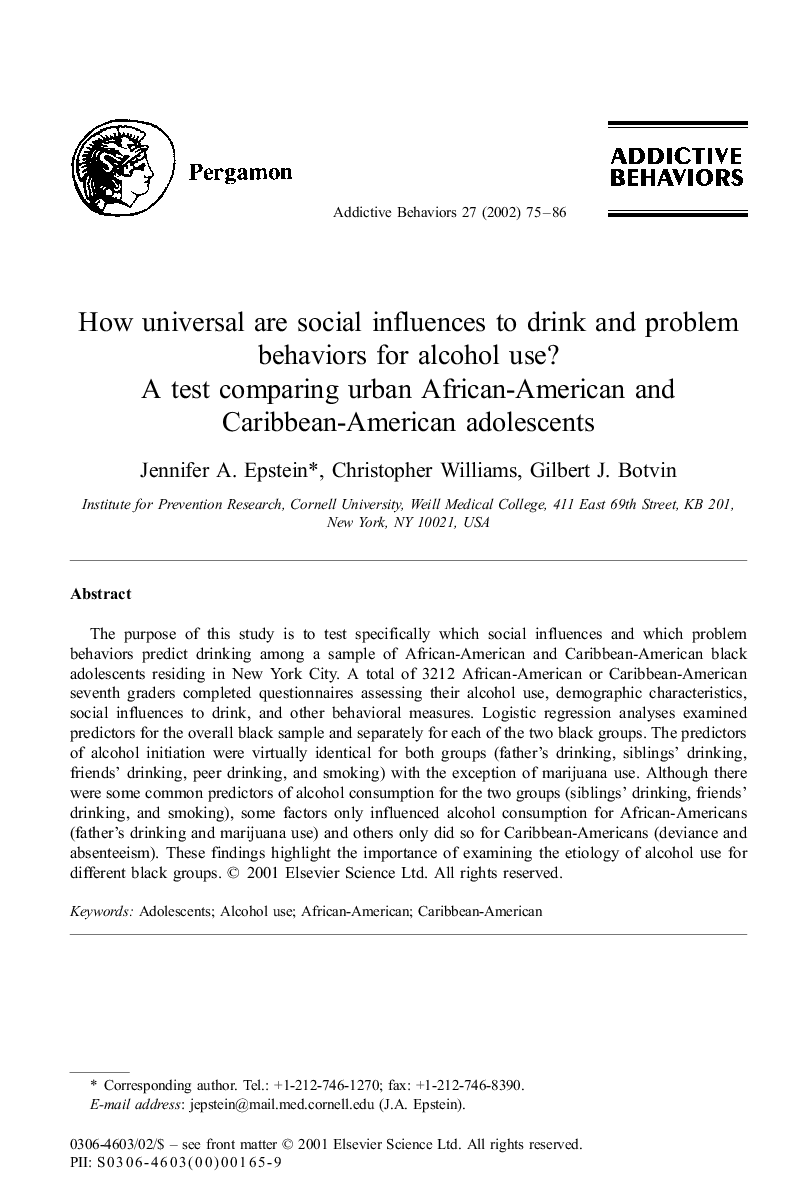The purpose of this study is to test specifically which social influences and which problem behaviors predict drinking among a sample of African-American and Caribbean-American black adolescents residing in New York City. A total of 3212 African-American or Caribbean-American seventh graders completed questionnaires assessing their alcohol use, demographic characteristics, social influences to drink, and other behavioral measures. Logistic regression analyses examined predictors for the overall black sample and separately for each of the two black groups. The predictors of alcohol initiation were virtually identical for both groups (father's drinking, siblings' drinking, friends' drinking, peer drinking, and smoking) with the exception of marijuana use. Although there were some common predictors of alcohol consumption for the two groups (siblings' drinking, friends' drinking, and smoking), some factors only influenced alcohol consumption for African-Americans (father's drinking and marijuana use) and others only did so for Caribbean-Americans (deviance and absenteeism). These findings highlight the importance of examining the etiology of alcohol use for different black groups.
Alcohol abuse is a leading health and safety problem in Black America. Marketers are advertising alcohol much more heavily in black neighborhoods than in white ones Hackbarth et al., 1995, McMahon & Taylor, 1990 and Moore et al., 1996. Black men residing in impoverished neighborhoods reported greater alcohol-related problems than comparable white men (Jones-Webb, Snowden, Herd, Short, & Hannan, 1997). According to nationwide samples, rates of frequent heavy drinking and alcohol-related problems were especially high among black men (Caetano & Clark, 1998).
Ethnic subgroup differences in alcohol use tend to be ignored (Collins, 1992). Black Americans comprise individuals of varied primary languages, countries of origin, and cultural perspectives (Hopp & Herring, 1999). Limited research compares drinking prevalence for African-American youth vs. Caribbean-American youth. A large-scale, multi-ethnic study of alcohol use among 7th to 12th grade students residing in New York State found that both African-Americans and Caribbean-Americans were lower in per capita alcohol use, percentage of heavy drinkers, and times drunk per month than whites (Barnes & Welte, 1986). Caribbean-American adolescents had similar drinking patterns to African-American adolescents. Despite this apparent similarity, this survey is over a decade old. More recent research indicates that Caribbean-American 7th graders drank more frequently, became drunk more often, consumed more per drinking occasion, and planned to drink more in the future relative to African-American youth (Epstein, Botvin, Baker, & Diaz, 1998). However, these studies did not examine predictors of alcohol use for each black group.


